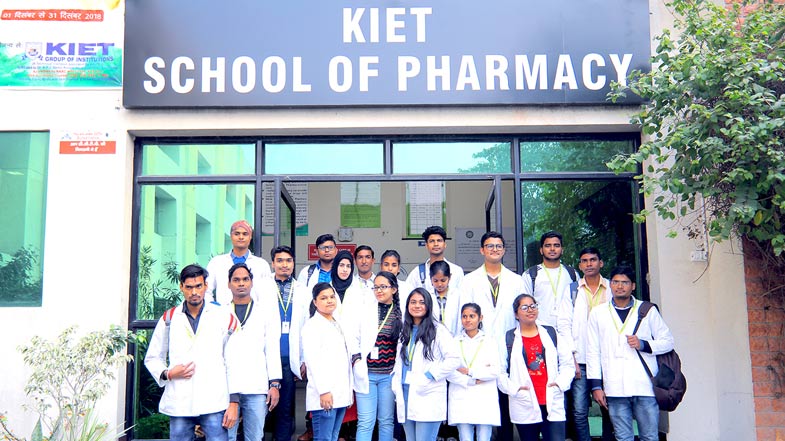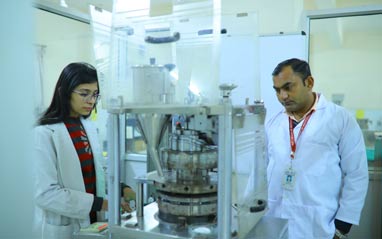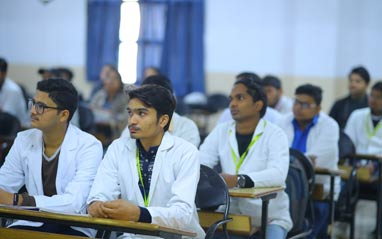KIET School of Pharmacy
About
Vision
To become a leading school in Pharmaceutical Sciences and Research to meet the needs of industrial and global community.
Mission
- To impart quality education in diverse fields of pharmaceutical sciences to improve human health.
- To provide strong fundamental knowledge in order to fulfill the demands of industries and community at large.
- To foster a conducive environment for academia multidisciplinary & socially relevant research and innovation.



Program Educational Objectives
Graduates shall be-- A professional pharmacist with the technological advancements to fulfil the principles of Quality Assurance, Formulation Development, Preclinical & Clinical Pharmacology.
- Capable of applying research skills to meet the requirements of the industry, and to cater the demand of society.
- Proficient in planning, continuous learning and communication upholding strong ethical responsibilities for a successful career.
Program Outcomes
- Pharmacy Knowledge: Possess knowledge and comprehension of the core and basic knowledge associated with the profession of pharmacy, including biomedical sciences; pharmaceutical sciences; behavioral, social, and administrative pharmacy sciences; and manufacturing practices.
- Planning Abilities: Demonstrate effective planning abilities including time management, resource management, delegation skills and organizational skills. Develop and implement plans and organize work to meet deadlines.
- Problem analysis: Utilize the principles of scientific enquiry, thinking, analytically, clearly and critically, while solving problems and making decisions during daily practice. Find, analyze, evaluate and apply information systematically and shall make defensible decisions.
- Modern tool usage: Learn, select, and apply appropriate methods and procedures, resources, and modern pharmacy-related computing tools with an understanding of the limitations.
- Leadership skills: Understand and consider human reaction to change, motivation issues, leadership and team-building when planning changes required for fulfillment of practice, professional and societal responsibilities. Assume participatory roles as responsible citizens or leadership roles when appropriate to facilitate improvement in health and well- being.
- Professional Identity: Understand, analyze and communicate the value of their professional roles in society (e.g. health care professionals, promoters of health, educators, managers, employers, employees).
- Pharmaceutical Ethics: Honour personal values and apply ethical principles in professional and social contexts. Demonstrate behaviour that recognizes cultural and personal variability in values, communication and lifestyles. Use ethical frameworks; apply ethical principles while making decisions and take responsibility for the outcomes associated with the decisions.
- Communication: Communicate effectively with the pharmacy community and with society at large, such as, being able to comprehend and write effective reports, make effective presentations and documentation, and give and receive clear instructions.
- The Pharmacist and society: Apply reasoning informed by the contextual knowledge to assess societal, health, safety and legal issues and the consequent responsibilities relevant to the professional pharmacy practice.
- Environment and sustainability: Understand the impact of the professional pharmacy solutions in societal and environmental contexts, and demonstrate the knowledge of, and need for sustainable development.
- Life-long learning: Recognize the need for, and have the preparation and ability to engage in independent and life-long learning in the broadest context of technological change. Self- assess and use feedback effectively from others to identify learning needs and to satisfy these needs on an ongoing basis.
